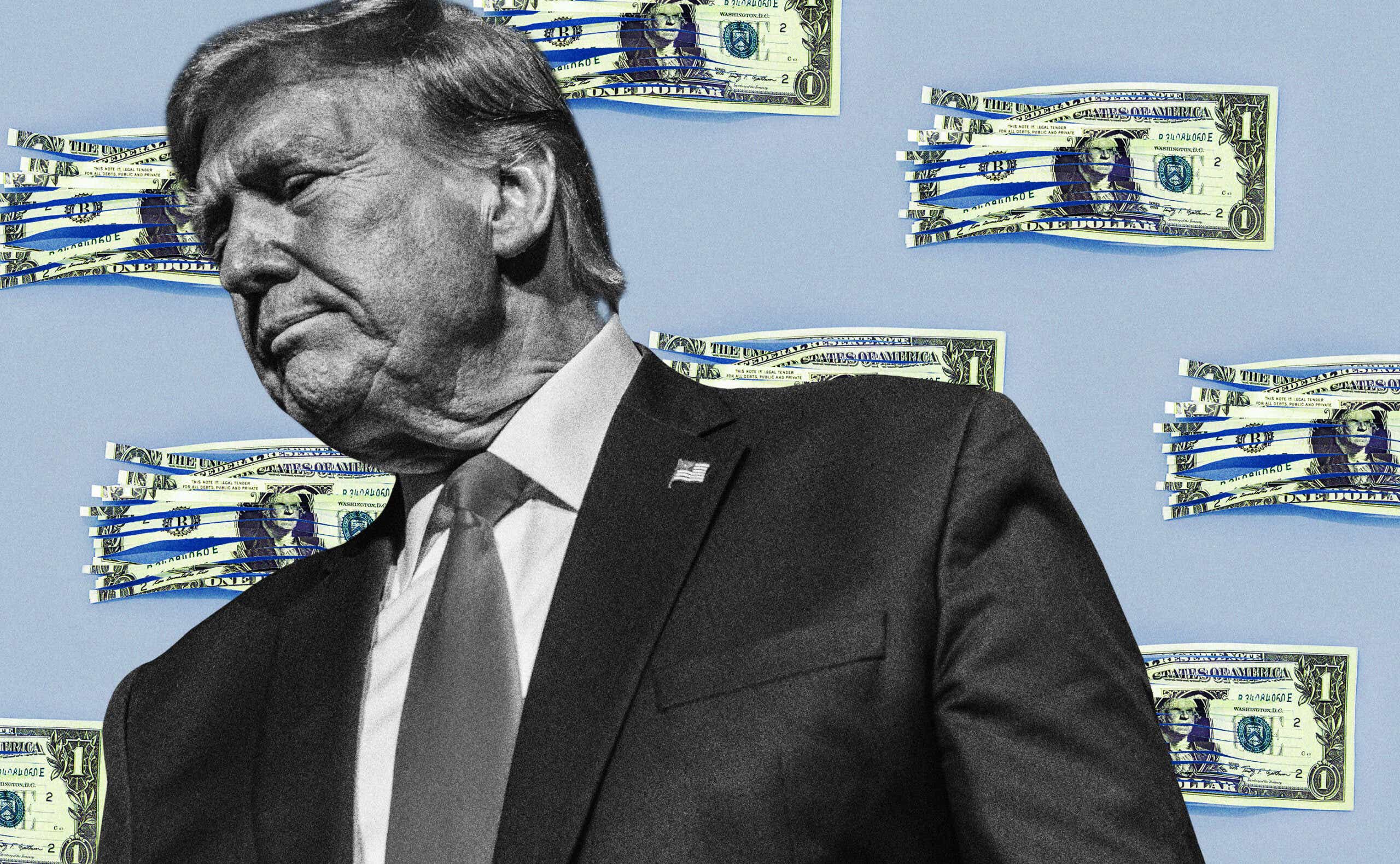The NY AG is prepared to go after the ex-president’s assets.
Former president Donald Trump’s legal saga has hit yet another hurdle: His lawyers say he can’t secure the necessary bond to cover the nearly half-a-billion-dollar civil fraud judgment against him in New York. Now, he’s hoping for a reprieve from an appellate court in hopes that it’ll waive the requirement to pay the whopping fine — at least while he formally challenges the decision.
“Defendants’ ongoing diligent efforts have proven that a bond in the judgment’s full amount is ‘a practical impossibility,’” Trump’s lawyers wrote in a court filing, citing an affidavit signed by an insurance broker, who testified for Trump during his trial last year.
This is at odds with what the former president posted on Truth Social on Friday, where he claimed to have close to $500 million in cash. “THROUGH HARD WORK, TALENT, AND LUCK, I CURRENTLY HAVE ALMOST FIVE HUNDRED MILLION DOLLARS IN CASH, A SUBSTANTIAL AMOUNT OF WHICH I INTENDED TO USE IN MY CAMPAIGN FOR PRESIDENT,” he wrote in all caps. “THE OFTEN OVERTURNED POLITICAL HACK JUDGE ON THE RIGGED AND CORRUPT A.G. CASE, WHERE I HAVE DONE NOTHING WRONG, KNEW THIS, WANTED TO TAKE IT AWAY FROM ME.”
His attorney told CNN that Trump wasn’t, in fact, talking about liquid assets, but rather, “the money reported on his campaign disclosure forms that he’s built up through years of owning and managing successful businesses,” which his attorney said “is the very cash that Letitia James and the Democrats are targeting.”
If the court turns down his request to waive the fine and Trump is unable to obtain a bond, New York Attorney General Letitia James could start going after his prized properties. As we await the decision, here’s what the ex-president’s legal team is saying about the situation, plus a legal expert’s take on the financial implications for Trump.
How much does Trump owe in his civil fraud case?
As a quick refresher, Trump and his co-defendants, including Donald Trump Jr. and Eric Trump, were hit with a $464 million penalty for inflating his net worth to dupe banks and lenders. Out of that total, the former president’s on the hook for $454 million of it. But that doesn’t even include interest, which amounts to a rate of nearly $112,000 per day.
The former president has denied any wrongdoing and appealed the ruling, but he must still meet bond requirements to delay paying the penalty as they appeal the case. In their court filing, Trump’s lawyers said bond issuers often will demand collateral totaling 120 percent of the judgment, which comes to $557 million. That’s definitely more than the $400 million he has previously claimed to have in the bank.
Why can’t Trump post a bond?
Trump’s lawyers said he has approached 30 insurance companies through four different brokers to back his bond without any success. They alleged that part of the issue is that none of them are willing to “accept hard assets such as real estate as collateral” and will “only accept cash or cash equivalents.” But freeing up cash by offloading some of Trump’s properties in a “fire sale” is a no-go because they say it would lead to irrecoverable losses.
The ex-president’s team also argued that there are only a “handful” of insurers approved by the Treasury Department to underwrite such a high bond, and most internal policies only allow for up to $100 million. “A bond requirement of this enormous magnitude — effectively requiring cash reserves approaching $1 billion — is unprecedented for a private company,” Trump’s lawyers wrote.
Trump now has until March 25 to pay the judgment — unless the appeals court either agrees to stop the proceedings or allow him to post a smaller bond. In a filing last month, Trump’s lawyers asked that the amount be reduced to $100 million instead of the full payout, but an emergency appeals judge rejected that request, along with a 30-day delay in the enforcement of damages. The only difference now is his team has argued that he shouldn’t have to put up any bond at all.
The former president’s latest financial troubles have also been exacerbated by his posting of a $91.6 million bond to writer E. Jean Carroll from enforcing a defamation verdict while he appeals that case.
What will happen if Trump doesn’t pay his fine?
James has already vowed to seize some of Trump’s properties if he isn’t able to cover the bill from his costly verdict.
“If he does not have funds to pay off the judgment, then we will seek judgment enforcement mechanisms in court, and we will ask the judge to seize his assets,” she told ABC News in February after the civil fraud ruling.
But can the state really go after Trump’s assets? Some legal experts seem to think so — and it could even force him to declare bankruptcy.
“If he is unable to post a bond to get a stay pending appeal, and the appellate court does not grant his request for a stay on different grounds, then the attorney general would be able to enforce the judgments against his personal and corporate assets,” Syracuse University law professor Gregory Germain tells Katie Couric Media. “I suspect in that event he would file bankruptcy to get the benefits of the automatic stay, because allowing enforcement would make his life very difficult.”
That said, Germain added that since “there is a monitor in place to protect against Trump dissipating assets during the appeal, the appellate court may grant relief to preserve the status quo and allow the appeal to be heard.”
Even if the time comes for his assets to be seized, it isn’t clear what the former president has pledged as collateral to obtain his bond, so it might be too soon to say goodbye to Trump Tower.








